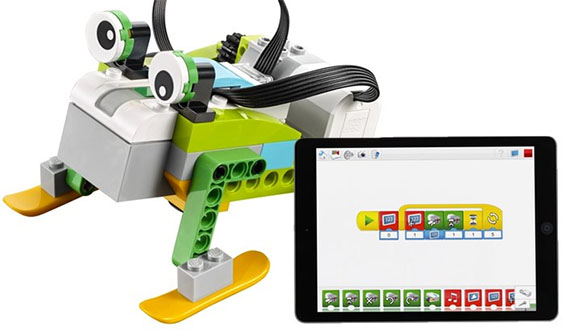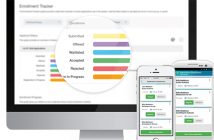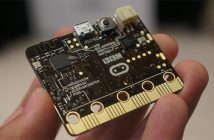
Lego Education is gearing up to release the second edition of its educational robotics kit, WeDo 2.0, aimed at helping schools expand their curricula to include material about coding, engineering, and robotics.
Lego Education is a division of the Lego company devoted to science, technology, engineering, and math (STEM) education for children.
Like the first edition, which launched in 2009, the WeDo 2.0 kit will come with the familiar Lego bricks. This new version will also include internet of things (IoT) technologies like a Bluetooth-connected motor and motion and tilt sensors, according to Colm Gorey of Silicon Republic.
Kids will be given instructions on how to create a machine, which will allow them to utilize Lego’s drag-and-drop coding system to further develop their creation, writes Frederic Lardinois of Tech Crunch.
Among the eight guided project kits and eight open-ended projects that are scheduled for release, there are kits dealing with recycling concepts, how plant pollination works, minimizing the impact of weather disasters, space exploration, and the Amazon rainforest. With the wide range of subjects that these projects deal with, they can increase the hands-on potential of any STEM class, from astronomy to zoology.
Dean Takahashi of Venture Beat quoted Jeffrey Marlow, a geobiologist at Harvard University and the founder of the Mars Academy education and development program, on the importance of projects like WeDo:
Teachers know that science and technology skills are crucial for today’s elementary school students, but providing engaging projects that mean something in the real world is a challenge.
These science lessons do more than just teach students facts to memorize. They represent an immersive experience that instills a deeper understanding of the scientific method and evidence-based reasoning.
In addition to the kits, which will cost $160 for the core set, Lego plans to offer 40 hours of lessons for the price of $2,260 for an average classroom. A less-structured class pack that doesn’t include the curriculum of the other pack costs $1,930. Schools who subscribe to these class packs get a site-wide license to use the material, meaning that classrooms can share the kits within the same school.
Each kit includes a Bluetooth low-energy Smarthub, an electronic building brick for the Lego Power Functions platform, one motor, one tilt sensor, and one motion sensor, in addition to the core software.
Lego made its coding software available on January 5th, for PC and Mac, as well as for iPads and Android tablets. A Chromebook version will be released later this year, reports Ross Miller of the Verge.
Previous Lego releases that deal with science and programming include Lego Mindstorms. Lego Mindstorms are targeted at middle and high school students, who can build robots to complete tasks and compete. WeDo 2.0, on the other hand, is designed for a younger crowd.
WeDo 2.0 was announced at the 2016 International Consumer Electronics Show, an annual technology gathering held in Las Vegas this week.




